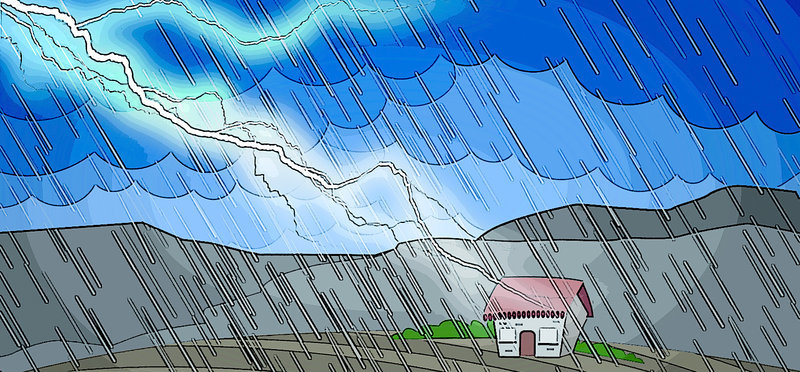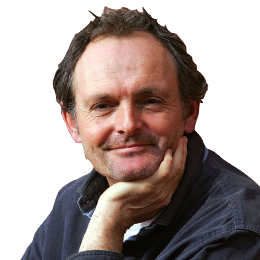HEADING FOR THE HILLS
MARTIN KIRBY
This house still stands
Then we began to patch and restore what was broken and battered; our way of life. This Catalan house still stands, whatever the weather.
There was, in a flash, electricity and fear in the air. The bully storm crashed into our tight valley and started flailing. The first lightning bolt took out our modem, phone, one computer, our water heating system, the stereo amplifier and several power circuits.
It bucketed nearly eight centimetres of water in a day of crackling fury and the roof gutters and windows of our old stone home seeped. Our cami cried floods of red soil and stones onto the road and we began to wonder if it would ever end. But it did.
We waited, resolute. We had been reduced to the light of candles, but as our eyes adjusted our sense of place grew stronger. Then we began to patch and restore what was broken and battered; our way of life. This Catalan house still stands, whatever the weather.
In the aftermath of fretful force the purr of stoical Priorat toil returned: tractors, voices from groves, the distant railway and road. And standing looking at the broken branches on the ground, the blown buckets and tarpaulins, what struck home more than the tempest was the greater potency of the indefatigable people of the land I live among: the farming/village proletariat, where power is in the unity and rhythm of la terra, in strong hands and backs moulded by labour. Many are very elderly, yet keep loyal to honest toil, touching the earth daily as if to ground this life. They, like the olives and vines, are rooted to withstand.
They will need these roots, because weather patterns are now more unpredictable than ever. The storms will rage on because, as I have said many time before, the pressure and preoccupations of profit, of the powerful enforcing their greed, will continue to poison the climate, contrary to the glaring need for a sustainable co-existence, in a world that champions diversity, both ecological and social. We have to balance economics with core moral and social values that do not have a price. And we need to stand firm and peacefully voice that, now more than ever.
I hear that phrase a great deal in the Priorat. There is so much of this life that does not have a price. The women and men of the land, who live closer to nature than anyone, and labour long and hard, are very self-reliant, often independent - defensive of their families and communities because they understand the enormous strength of both. This is manifest in the Catalan pillars that are the village and town cooperatives. Mere toil it is not, for there is rich thought and philosophy too.
And thinking of my Catalan friends and neighbours, by whom I mean all races and creeds here, I am reminded of a passage in a book, The Farmer’s Creed, by Crichton Porteous, published in 1947. It is the educated author’s account of his radical decision in the early 20th century to spurn office profits and seek instinctively the fulfilment of working the land. His good fortune was to find an erudite and grounded farmer – Mr Boone – to teach him. The last words, then, in this part allegorical offering from me (for which I make no apology) are Mr Boone’s.
Those that labour “are the men really in touch with things. They are the men who could think upward from reality. Instead of that we seem to prefer our thinkers to be men who have never touched reality.”


